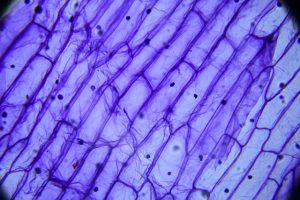Holistic Paths to Addiction Recovery: Balancing Mind, Body, and Community Support
Holistic addiction recovery is a comprehensive treatment approach that goes beyond traditional methods by addressing the physical, emotional, mental, social, and spiritual dimensions of substance use disorders. It recognizes the complexity of addiction an…….

Holistic addiction recovery is a comprehensive treatment approach that goes beyond traditional methods by addressing the physical, emotional, mental, social, and spiritual dimensions of substance use disorders. It recognizes the complexity of addiction and tailors recovery plans to individual circumstances, integrating evidence-based therapies like cognitive-behavioral therapy with alternative treatments such as mindfulness, acupuncture, and yoga. This multifaceted strategy not only aims for long-term recovery but also promotes a balanced lifestyle, emphasizing the role of positive relationships in sustaining recovery. Mental health professionals play a crucial role in this process, offering bespoke therapeutic methods to address psychological factors contributing to addictive behaviors. Physical wellness is another cornerstone of holistic recovery, with regular exercise, balanced nutrition, and adequate rest being key to healing the body from substance abuse effects. Additionally, supportive communities are vital for sustained healing, providing emotional support, practical advice, and a sense of belonging that is fundamental for long-term sobriety. The social aspect of addiction recovery highlights the importance of nurturing relationships as a foundation for enduring change and recovery. This holistic framework is pivotal in fostering comprehensive and lasting change in the lives of those affected by substance use disorders, with a strong emphasis on addressing all aspects of well-being to ensure effective addiction recovery.
Holistic addiction recovery encompasses a comprehensive and integrative approach, blending traditional treatment methods with alternative practices to foster a well-rounded path toward healing. This article delves into the multifaceted strategies that address both the physical and psychological aspects of substance abuse, emphasizing the importance of mental health, physical wellness, community support, nutrition, spirituality, mindfulness, emotional regulation, and personalized therapies. By examining each component’s role in recovery, we explore how these holistic approaches can lead to sustainable sobriety and a meaningful life post-recovery. The science supporting this method illuminates its efficacy, and success stories underscore its transformative potential for individuals on the journey to overcoming addiction.
- Understanding Holistic Addiction Recovery: A Multidimensional Approach
- The Role of Mental Health in Holistic Addiction Treatment
- Physical Wellness and Its Impact on Substance Abuse Recovery
- Embracing Community Support for Sustained Addiction Recovery
Understanding Holistic Addiction Recovery: A Multidimensional Approach
Holistic addiction recovery is a comprehensive and integrative approach that transcends traditional treatment models by addressing the multifaceted nature of substance use disorders. This method acknowledges that addiction is not solely a physiological condition but also encompasses emotional, mental, social, and spiritual dimensions. It emphasizes the importance of a personalized treatment plan that considers an individual’s unique circumstances, including their environmental factors, lifestyle choices, and overall well-being. By incorporating a variety of therapeutic techniques, such as cognitive-behavioral therapy, mindfulness practices, and alternative treatments like acupuncture or yoga, holistic addiction recovery aims to promote long-term abstinence and foster a healthier, more balanced life. The integration of evidence-based therapies with complementary and alternative medicine strategies empowers individuals to take an active role in their healing process, leading to improved outcomes and a higher likelihood of sustained recovery. This approach also recognizes the significance of building a supportive community and maintaining positive relationships as key components in the journey toward addiction recovery.
The Role of Mental Health in Holistic Addiction Treatment
Holistic addiction recovery recognizes the intricate interplay between substance use and mental health. A comprehensive approach to treating addiction involves addressing the psychological underpinnings that often contribute to addictive behaviors. Mental health professionals play a pivotal role in this process by providing therapeutic techniques tailored to each individual’s unique circumstances. These interventions may include cognitive-behavioral therapy, mindfulness practices, and stress management strategies. By fostering an environment where individuals can explore the emotional and psychological factors driving their addiction, holistic treatment aims to promote mental well-being alongside physical health recovery. This dual focus on mind and body not only facilitates sustained abstinence from substances but also supports overall life improvements, enhancing the individual’s resilience against relapse and equipping them with coping mechanisms for maintaining long-term addiction recovery.
Physical Wellness and Its Impact on Substance Abuse Recovery
holistic approaches to addiction recovery often emphasize the importance of physical wellness in the healing process. This approach recognizes that substance abuse can have profound effects on an individual’s physical health, and addressing these effects is crucial for a sustainable recovery. Physical activity, balanced nutrition, and adequate rest are foundational elements that support the body’s natural healing abilities. Regular exercise, for instance, not only improves overall fitness but also helps regulate mood by releasing endorphins, which can alleviate withdrawal symptoms and reduce cravings. Furthermore, a well-rounded diet rich in essential nutrients provides the necessary fuel for the brain and body to function optimally, aiding in the repair of damage caused by substance abuse. By focusing on physical wellness, individuals in recovery can experience improved mental clarity, enhanced energy levels, and a stronger immune system, all of which contribute to resilience against relapse. This holistic perspective acknowledges that addiction affects every aspect of an individual’s life, and a robust physical foundation is integral to the broader spectrum of addiction recovery.
Embracing Community Support for Sustained Addiction Recovery
Holistic approaches to addiction recovery recognize the importance of a supportive community in fostering sustained healing and well-being. Engaging with peers who share similar experiences can provide comfort, understanding, and motivation. These communities offer a network where individuals can openly discuss their journeys without fear of judgment, creating an environment where vulnerability leads to mutual growth. The shared wisdom within these groups often highlights various coping strategies that can be employed during challenging times, reinforcing the effectiveness of addiction recovery programs. Moreover, community support extends beyond emotional encouragement; it encompasses practical assistance with finding resources, navigating healthcare systems, and maintaining accountability. By integrating into a supportive community, individuals in recovery are more likely to experience a sense of belonging and purpose, which are crucial components for long-term sobriety. This social model of recovery emphasizes the role of relationships and connections as a foundation for sustained addiction recovery, highlighting the necessity of a nurturing and inclusive environment that promotes healing both individually and collectively.
Holistic addiction recovery encompasses a comprehensive and personalized approach that integrates various therapeutic techniques, mental health support, physical wellness practices, and community engagement to foster sustained sobriety. This multifaceted strategy acknowledges the complexity of substance abuse and addresses it through a unified framework that goes beyond mere abstinence. By considering the individual’s psychological, emotional, and physiological needs, holistic recovery empowers individuals to not only overcome addiction but also to lead fulfilling lives. The interconnectedness of mental health, physical well-being, and social support is pivotal in this journey, offering a robust foundation for lasting change. Addiction recovery is a profound transformation that requires dedication and resources; through holistic methods, individuals can navigate their path to recovery with greater success and resilience.









